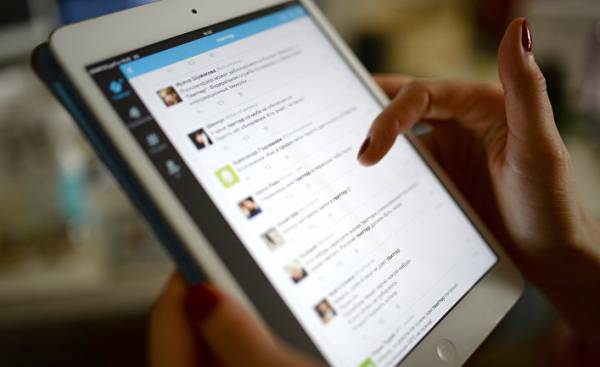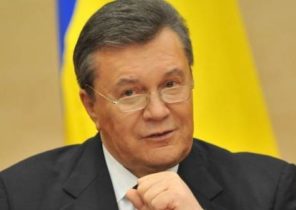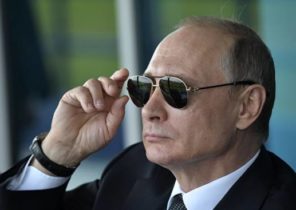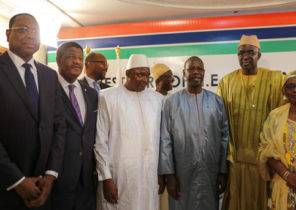
From Russia with likes: tweets of the Embassy proved to be a successful step Moscow (become a hit)
Neil Buckley (Neil Buckley)
When Theresa may (Theresa May) has accused the EU of meddling in the UK General election, the Russian Embassy in London deadpanned on Twitter: “Thank God, this time not Russia.”
After the tweet gained 9.7 thousand retweets and 12 thousand likes, even some ardent critics of Russia in the social network acknowledged (similar to how football fans are reluctant to applaud a goal scored the striker of the opposing team) that it was “epic trolling”.
In an attempt of direct intervention in elections in the UK as in the US and France, Moscow is not charged. But in a broader “information war” between Russia and the West the reputation you acquired the account of the Russian Embassy in London with his sarcastic tweets, clearly demonstrates that he was not just a communication tool but also an instrument of “digital diplomacy.”
In the posts it uses a set of sharp, sarcastic memes, and even poems and music. Once an Embassy in one of his posts portrayed Russia as a big strong bear, and the Eurozone — in the shape of a pen for pigs under the rainbow LGBT flag raised by the fighters for gay rights. Over the past year, account of the Russian Embassy @RussianEmbassy ahead of popular sites of American and Israeli embassies and became the most visited of the diplomatic missions in London. The number of its subscribers has reached 56 thousand.
It is surprising that those who are behind the page on Twitter, are professional diplomats, and digital technologies not specifically studied. To give an interview about his activities on social networks, or to say who is responsible for the publication on Twitter, the Embassy refused. We were told that these publications is the result of “collective efforts”. Say that your contributions make many of the about 30 employees of the Embassy.
Ilan manor (Ilan Manor), a scientist engaged in research in the field of digital diplomacy, worked with Embassy representatives Rossiyskogo at the conference on the role of social networks. He argues that the conduct of the account is the daily duty of the press attaché Konstantin Shlykov, which often helps Ambassador Alexander Yakovenko.
Alexander Yakovenko in 2000-e years was the official representative the Ministry of foreign Affairs, courteous and seasoned diplomat. He then became Deputy Minister of foreign Affairs. Sometimes PR Agency in Brussels and the United States, which (Russian) treated between 2006 and 2014, was invited him as a Pro-European views in briefings for journalists, to try to improve the Kremlin’s image. Today he openly declares more Pro-Putin views.
Energetic mister Shlykov, who was 38 years old, serving in the post of press attaché in the UK for a second term. For the position which he holds in London, in every way seeking to avoid the publicity, lies the love part in a TV show. Since 2004, Konstantin Shlykov 16 times participated in the TV show “jeopardy”, the Russian analogue of the American TV program Jeopardy. This month he completed his latest series of five games. In 2006, he took part in a quiz show “Who wants to be a millionaire.”
“We do not interfere in the Affairs of other countries, — said the representative of the Russian Embassy on the issue of The Financial Times. But if in the course of the national dialogue Russia challenge, we have to react.”
In Twitter a response to the Russian Embassy at the abolition of the Minister of foreign Affairs Boris Johnson (Boris Johnson) of his visit to Moscow in April of this year was the placement of the post with a clip of Tchaikovsky’s Overture “1812”, written in honor of Russia’s victory over Napoleon.
The most popular publication of the Russian Embassy, with 22 thousand retweets, came after outgoing President Barack Obama has deported 35 Russian diplomats because Moscow was allegedly committed by a hacker attack during the presidential elections in the United States. The Embassy then posted a picture of a fluffy duckling, on top of which sported the words “lame” (“lame duck” — an informal designation of the outgoing politician. The expression also means “failure”, “miserable”, “insignificant” — approx. TRANS.). The post immediately caught their media publications such distant countries as Australia and India.
On the website of the Russian Embassy on Twitter the most controversy is the section called Russian Diplomatic Online Club (Online club of the Russian Embassy). Those who enter into virtual diplomatic club (you have to click with the mouse), they promise additional benefits, including invitations to special reception at the Embassy. Instead of “new members club” you want to grant access to the app with their accounts carries out the census of the messages from the account g-on Jakovenko, one post a week. That is, of the users, join the Club, creates a kind of network of “bots”.
Recently the club has been suspended — apparently after complaints to Twitter. The Embassy stated that more than 400 people who have joined the club, fully aware that “what I signed up for”.
As stated at the Russian Embassy, his activities in social networks, aims to “respond to media reports, when Russia’s position misrepresented, deliberately distort its meaning, or publish false news about Russia”.
The Embassy in social networks also aims to inform the public about the “real situation in and around Russia.” After all, in all aspects, “apart from culture and partly the economy,” the publication of all British media about Russia are negative,” the unhappy said the representative of the Embassy.
According to Mr. manor from the Group of digital diplomacy at Oxford University, the Russian Embassy in London started to work on the Internet in “emergency mode” after last year’s vote the UK out of the EU.
“Russia believes the UK government, which is the digital “battlefield”, — he said. — Here there is a shift in foreign policy, there is a huge sense of unpredictability. And the Russians are trying to play on that.”
“Are they able to affect people in the UK… so that they supported the position of Russia? It is unlikely, he continues. — Are they able to attract attention, to present their point of view in the press, among the elites and those who shape public opinion? I’d say Yes.”







